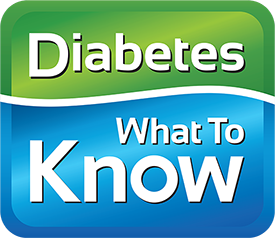By Melinda Maryniuk, MEd, RD, CDCES
Getting enough sleep is critical for overall health… and it’s also important that our sleep be of good quality, meaning that it is uninterrupted and deep.Many of us consider getting enough sleep a luxury, but we really need to think about it as an essential part of daily self-care.
Recently, research has linked poor sleep with many health concerns, including an increased risk of heart problems and high blood pressure, difficulty managing weight and increased risk of getting type 2 diabetes. For those who already have diabetes, poor sleep habits are linked with more out-of-range blood glucose levels and a higher A1C. Both people with diabetes and people with excess weight are more at risk for sleep apnea, a potentially serious sleep disorder where breathing repeatedly stops and starts. If you snore loudly and feel tired even after a full night’s sleep, you may have sleep apnea.
Most experts agree that adults should aim for 7-8 hours of sleep each night. When sleep is disrupted or you do not get enough, the body does not have enough time to rest, recover and heal itself. Normal hormone activity is altered, insulin production is decreased and the body’s ability to process glucose declines. Other hormones (such as adrenaline) increase which can raise blood glucose. When you don’t feel well rested, you may not have the energy to do your normal activities, you may get less exercise, and over time, your weight may go up. It can be a vicious cycle. However, the good news is there are things you can do at home, as well as medical treatments, to help you get a better night’s sleep.
Things You Can Do:
Think about your sleep patterns. If you feel sluggish or run-down during the day, ask yourself if you think you are getting enough sleep. Have you been told you snore loudly? Keep a sleep diary for a week, writing down the times you get in/out of bed, frequency of nighttime wakeful periods and overall hours of sleep. Give yourself a score (1-10) of your alertness during the day.
Keep a regular sleep-wake schedule. Try and go to bed and wake up at about the same time every day. Even on weekends.
Establish a calming routine before bed.This will be different for everyone; it might include taking a hot shower or spending a few minutes reading a relaxing book or meditating. The key is to find a routine that help you relax before going to sleep.
Exercise regularly. Most people report that they sleep better on the days they do more exercise. Just avoid doing a strenuous work-out within a few hours before going to bed.
Avoid stimulants. Try to avoid caffeine, nicotine and other chemicals that may interfere with sleep at least 4-5 hours before you plan to fall asleep. Also avoid eating and drinking within an hour or two of bedtime.
Keep alcohol to a minimum. While alcohol makes us feel relaxed and sleepy, alcohol in excess can lead to poor sleep quality and duration.Alcohol can also make the symptoms of sleep apnea worse. Stick to the general guidelines for alcohol to minimize these issues – one drink per day for women, and two drinks per day for men.
Avoid blue lights from screens. Blue light interrupts your body’s ability to prepare for sleep by blocking a hormone called melatonin that makes you sleepy. If you are spending time on a computer, watching TV, scrolling on your phone or reading an ebook, this can contribute to sleep problems. If you can’t avoid screens for an hour or two before bed, make sure you’ve installed a blue-light filtering app on your device, dim the screen’s brightness or consider wearing blue-light blocking glasses.
If you have diabetes, aim to keep glucoses in target. When glucose runs high, you are more likely to run to the bathroom more often.
If you have excess weight, aim to lose some. Excess weight can contribute to breathing problems while sleeping and is linked with sleep apnea. Studies show that losing even a small amount (for example, just 5 – 10% of your starting weight), helps improve sleep.
Talk with your doctor or healthcare provider. If you think you may have sleep apnea or if your home remedies are not helping, learn about your other options. You may need a sleep study to diagnose your specific sleep problem. Your healthcare provider may also be able to recommend an over-the-counter sleep aid, such as melatonin, that may be helpful.
The medical information on Diabetes – What To Know’s website is provided as an information resource only. The content is not in any way intended to be nor should you rely on it as a substitute for professional medical evaluation, diagnosis, advice and treatment.

